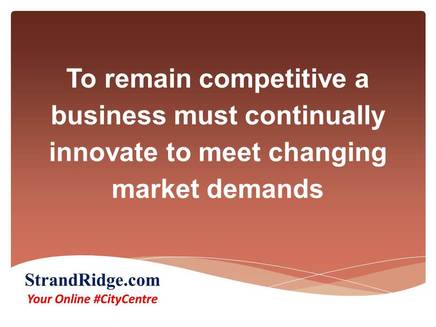Embracing A Culture of Transformation
The bakery opened for business with a market focus by putting customers first through product innovation. But as it grew, it shifted to putting profit first.
The bakery produced artisan breads and pastries using flour and other ingredients from local family farms. They charged premium prices and found a loyal following of consumers for their fresh bakes. As consumer demand grew the bakery started to add a greater variety of products such as pickles, jams, frozen soups and dinners made fresh daily.
Then the bakery made the decision to go wholesale supplying artisan stores and cafes throughout the city with their products. This required buying ingredients in bulk from certified all natural mills and wholesale suppliers. Some of the loyal early customers complained that the products were no longer as tasty as before. Added to this was the fact that prices had gone up to maintain profit margins as the bakery shifted from retail to wholesale production.
The bakery’s focus began to shift towards growing market spread. More employees were hired to cope with increase in production. While business flourished, the work culture changed. Its’ philosophy of selling artisan baked products for a niche market changed to selling natural products to a wider market segment.
The shift in work culture resulted in many of the bakery’s early customers leaving as they no longer considered the bakery’s products truly artisan..
By growing a business at the expense of losing its’ original identity and brand value the business created a vacuum in the niche market it served at inception. This shift away from the niche market has created an opportunity for a new business to enter the market and grow.
Can a business grow without abandoning its’ founding values and original niche market? It is difficult to say we are market focused when financial profit is a vital part of business growth and survival.
Social and technological advances are constantly causing shifts in market expectations. To remain competitive a business must continually innovate to meet changing market demands.
Market Focus
A market focused culture encourages a business to use consumer feedback to stimulate innovation to serve the niche market better. This leads to high performance which sustains business growth.
A market focused culture requires putting the customer at the centre of conversations and decision making in the business. This is a challenge as the interest of other stakeholders such as investors, suppliers and team members need also to be addressed.
There has to be an acceptance of the culture by all levels of the business from the top leadership all the way down to the delivery personnel. This can only be achieved through open communications across work functions.
The market focused culture should also be communicated to consumers so they become advocates of the culture in a way that translates into brand identity for the business.
Organisational Change
Some technology manufacturers are shifting from manufacturing hardware to designing software as the hardware market fragments with multiple devices becoming internet access points. For many such manufacturers the race is into cloud computing innovation to retain customers.
Innovation therefore is an integral part of a market focused culture that keeps pace with the evolution in customer expectations. Market focused businesses invest in developing a customer centric work culture that drives the team to think of innovative solutions in response to customer expectations. The aim is to create and satisfy market demands.
Business Transformation
To bring out the best in your team invest in consulting and the acquiring of new knowledge to transform the business into one that is responsive to changing market realities.
Do this by introducing fresh knowledge into your team’s conversations to stimulate innovative thinking. Many successful businesses invite authors and consultants to conduct monthly presentations.
Market focus and customer first should be part of the sales pitch by the top leadership internally with the team and externally with other stakeholders. Market focus orientation requires encouraging new thinking about changes in the market by your entire team. Embracing continual learning is a great way to start the transformation towards serving the market better.
Siddha Param
International Business Consultant
Reboot your business plan for sustained high growth
Click For Link To:
BUSINESS SERVICES
CENTRE FOR EXCELLENCE
BUSINESS EXCHANGE MALL CONNECTIONS
Do share this article on social media and with those interested

 RSS Feed
RSS Feed
